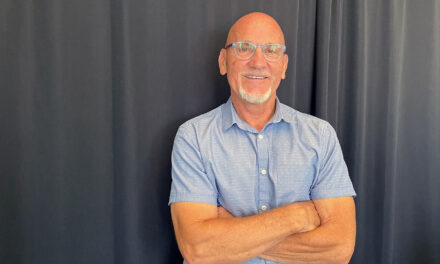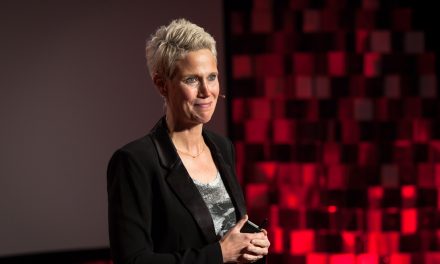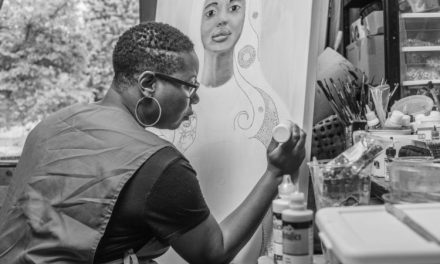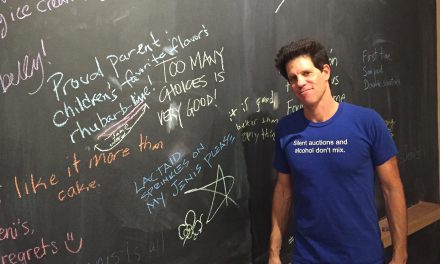Podcast: Play in new window | Download
Subscribe: RSS
Tim Fulton 00:13
Ladies and gentlemen, welcome to the confluence cast presented by Columbus underground. We are a weekly Columbus centric podcast focusing on the civics, lifestyle, entertainment, and people of our city. I’m your host Tim Fulton. This week, the children of our community need advocates in order to ensure that they are safe, stable and able to thrive. When it comes to homes and families, that is the role of Franklin County Children’s Services. They are tasked with making sure that children are safe in their homes, providing families with resources if they are needed, and providing support to the community in general. I spoke with caseworker Carrie Miller who works in the medically involves serious harm unit, which, as you might imagine, deals with some of the most difficult cases. A trigger warning here. We discuss harm to children in this episode, but do not describe specific incidents of harm. You can get more information on what we discussed today in the show notes for this episode at the confluence cast.com. Right now the DNC is accepting donations as part of their holiday wish campaign. You can find out how to support the drive or sponsor a family at Franklin County kids.net. The confluence cast is sponsored this week by the Mid Ohio Regional Planning Commission or MORP. See, featuring stories about local and regional partners that envision and embrace innovative directions in economic prosperity, transportation, sustainability, and an inclusive Central Ohio. More proceeds transformative programming, innovative services and public policy initiatives are designed to promote and support the vitality and growth in the region. For more information, please visit more si.org Enjoy the interview. Sitting down here virtually with Kerri Miller caseworker for the last four and a half years I believe at Franklin County Children’s Services. Carrie, how are you?
Caseworker Carrie Miller 02:14
I’m good. How are you?
Tim Fulton 02:16
I’m doing well. Carrie, you were sort of pitched as the an excellent example of a caseworker at Franklin County Children’s Services. This is where you blushed thankfully, we’re not recording video, you specifically work in the medically involved serious harm unit, which I think is sort of the most frightening cases externally. And we’re not going to get into a whole lot of the doom and gloom in that. But can you talk about that unit and sort of what it handles? Sure.
Caseworker Carrie Miller 02:45
So typically, those kinds of cases can come in one of two ways. One would be a medical neglect situation. Usually when we get the case, the child is admitted or works very closely with Nationwide Children’s Hospital. So if we’re getting a metal case, it might be, you know, a variety of missed appointments, medication isn’t, isn’t being distributed correctly, or just other things that caregivers are supposed to be doing. But they allegedly are not and it’s impacting the child’s, you know, their health. So that’s one of the type of cases that we might get the other side of things would be on the serious harm portion of things. So that’s where we’re seeing kids with significant injuries that are concerning for non accidental trauma. And those usually there, there are little ones our nonverbals maybe nonambulatory can’t crawl or walk yet. So those are always especially concerning. And there are types of injuries that will immediately flag as like some, some form of abuse will be possible from that. But yeah, those might be you know, like our burns are broken bones are our skull fractures and
Tim Fulton 03:53
she can be what I hear you saying is it’s the whole range of like things that are concerning and things that are like something is wrong, capital is wrong. Pivoting a little bit, what is your background that brings you to this role, like what what kind of education and why did you decide to do this?
Caseworker Carrie Miller 04:13
So I got my my bachelor’s in Social Work from Aloni University in Canton, Ohio, and then immediately went in and got my master’s degree in social work from The Ohio State University. I did my internship at Franklin County Children’s Services for my graduate degree and then for my internship for undergrad I did at Stark county Children’s Services. So smaller agency gave me a little bit of background and I was like I had initially not even planned on going into children’s services until I did that internship and I was like I you know, I love this. I love what they do. Like I love the mission. So and then I just kind of got hired on Franklin County afterwards and worked a normal normal intake unit for about seven months and then Michigan it was created, and I was one of the first caseworkers that it started the unit when it began. So that was back in February of 2019, is when that when that unit was kind of invented with the goal that we would partner with Nationwide Children’s Hospital and kind of work very closely with their social workers and their doctors, they have a child assessment team that’s really good that focuses specifically on child abuse cases. So we’ve been able to really like, I don’t know, build, build a good relationship with them and collaborate very well, on these cases. I think it helps the families, especially with the medical neglect case of cases, if you get a child with diabetes, or some form of like a kidney disease or something like that, it helps when we have, you know, we have experience working in those cases. So we’re not just a caseworker coming in no idea what diabetes really is or how it works. So we become familiar with the medical terminology. And parents don’t feel like they’re talking to just like some random caseworker who’s not familiar with what their child’s going through, like, we’ll know, the medications, the symptoms, like when it’s time, this is an emergency, take your kid to the hospital, we became very familiar with that. Over the year, Children’s Hospital was a great asset and kind of training us and making us familiar with the issues that our kids were experiencing. So in terms of, you know, the medical side of things, they’re very helpful. They were really good at education, educating us on injuries, like what to look out for in terms of, like, what is concerning for an abuse case, like there’s so of, of injuries that are just like, immediate flag for abuse, there’s really no accidental and explanation that can be provided for those. So those might be like fractures in different stages of healing, that’s obviously a concern. It’s not an accidental break, you’re having this happen more than one time over a span of time, bilateral injuries, injuries on both sides of the body, like if a child falls and like breaks bones on this side, that’s one thing if they have, you know, skull fractures on either side, that’s, that’s a whole other concern.
Tim Fulton 07:02
Right. So was that a motivation for creating the unit was that previously cases like that had been referred, referred basically into a general pool of cases, and whomever the case worker was, may not have been able or really good at addressing that specific kind of thing, may have even escalated cases too far. Because they simply didn’t understand what a child who might be nonverbal because of a completely different non custodial reason that they’re, you know, there was a disconnect between what what those needs were Yes,
Caseworker Carrie Miller 07:43
exactly. I think that was 100%. The thought process behind the creation of the unit is when you have, let’s say, 20 cases, and you get one really higher as case that’s where all of your energy goes. It’s really alarming when you first see these injuries, if you’re not familiar with them, everything seems horrible. Everything seems like it should be removal, until you become really familiar with that type of case. And then it’s like, Yes, this is concerning. Yes, something concerning happened, or maybe something accidental happened, doesn’t necessarily have to be a removal. So we become really familiar with, like how to address those situations, how to work with that family, not going out. And I think sometimes when caseworkers will get a case that seems especially high risk, they’ll go out with kind of the expectation like I know, this child was harmed. There’s no other explanation for why the child would have these injuries, when in fact, there is, you know, might have been a foul. It’s just a matter of actually listening to the family and deciding if the story that they’re providing is plausible and matches the injury. Gotcha. Yeah, I think that unit really, really helped kind of decrease maybe an overreaction to those kinds of cases.
Tim Fulton 08:52
Okay. Pivoting again, a little bit, can you talk us through sort of your day to day, obviously, you’re dealing with the intake of current cases, I assume you’re dealing also with a case, an ongoing caseload as well? Yes.
Caseworker Carrie Miller 09:05
So every day kind of looks a little different, especially as an intake caseworker everyday is very unpredictable. You might have, you know, visits scheduled throughout the day. And then you get a case that morning, that’s an emergency and your entire day, you gotta flip it, you’ve got to make different plans, reschedule visits, do whatever you need to do to make the mandates we met that day, or address a safety concern with the case that you got that morning. So it wouldn’t be like super unusual for us to get a new case daily, like maybe even two cases in the same day. Sometimes you only get three a week, but it really just depends on on the agency’s need and the number of cases that are coming in. So that case will come in with the newly recorded abuse or neglect concerns that probably got called in the night before over the weekend. And then we’re mandated to make contact with those families within the first day. So in Okay, in this particular unit, it’s typically just a call Call to the hospital, hey, is this child admitted? Can we come over and meet with them in the family at bedside. So ours is a little bit different than maybe a normal case where you would just go out to the home where you call parents, we’re usually just going to the hospital and meeting with them there. So never really quite know what to expect when you’re going. You can sometimes you review history, but sometimes families don’t have history in our system, it’s kind of going out kind of blindly. So we get there kind of introduced, I’ll usually kind of give them a brief explanation of what our involvement looks like right off the bat, because obviously, our presence can be, you know, scary. We’re a government agency works on services, we have a reputation. So my first, you know, within minutes of meeting them, it’s kind of explaining like, Hey, this is my goal. Like I just want to talk through and kind of figure out what happened, that kind of thing, kind of like, try to calm them down a little bit, if possible. And then we’re getting lists of everybody that lives in the Home Basic, like date of birth, spelling of names, that kind of information, then I’m doing the referral that we received, and explaining the different roles that were assigned, is there an alleged perpetrator that’s been like our parents listed as perps the child’s the victim, obviously, just explaining what that means. And then the possible outcome to that case. So whether we’re going to make a finding of abuse or neglect would be like substantiated, or unsubstantiated or indicated, those are the three possible outcomes to an investigation. Okay, so I explained that to parents immediately. So they have a good idea of like the time that we’re involved, which could be 45 to 60 days, and what’s going to take place during that timeframe. For me, I always find it really important to interview party separately, especially when it comes to concerns like this. If it’s an accident, we want to make sure that we know that it’s an accident, and we want to be clear in defending our decision that this is an accident and not like an inflicted injury. And the same if it is inflicted injury, we want to be really clear, like is everyone a concern? Or is it just one person? Well, separate parties compare reports like Are they consistent in the timeframes match to the stories match, who has had access to this child, in the span of time the hospital seating, this injury would have occurred. So if it’s a healing fracture, and we’re talking more than 10 days, we’re probably getting a pretty long list of people that we’re going to have to reach out to an interview. If it’s something that’s more acute, that’s happened in a few days before, I’m going day by day with, with a family, like walk me through this day from beginning to end, walk me through the night. If it’s a baby, who gets up to feed the baby, what do you do with babies crying and you’re sleepy? Like what’s your reaction, those kinds of things like, we get very, very, very specific to try to get as much information as we can in that initial in that initial interview, any drops, falls, accidents, any car, any car accidents, because those can be an explanation for any significant injuries. Even if the child wasn’t showing signs of being in pain, we consider anything because at the end of the day, like if, if there’s not a concern for, you know, inflicted injury, we don’t want to stay involved with the family if we don’t have to, if we don’t have to be involved. And we’re obviously you know, considering babysitters, daycare grandparents, not just parents just because they’re the ones with the most access, and then I’m always really, really upfront with the family. about like, what I’m thinking if something was shared, that was concerning, I’m addressing it then in there. Okay. I don’t ever want them to feel like, you know, I’m putting anything back. I’m never just gonna show up and remove their kids without them knowing exactly why that’s gonna happen.
Tim Fulton 13:32
Yeah, or acting like everything.
Caseworker Carrie Miller 13:36
I’m not someone to blindside them, like, we’re going to be on the same page the whole way through. If I think you’re lying, I’m going to tell you that kind of thing. If I think that you’re doing something, well, you’ll know that too. So one of the most. I mean, in this unit, I think something that’s a pretty common conversation is when we have a non ambulatory child who’s not walking or crawling and has an injury. This child can’t move, can’t can’t rollover, can’t do anything. And just making sure that it’s clear like whether this is an accident or inflicted injury, someone knows what happened. This child had a caregiver and then just kind of like easing their minds if this was an accident, it’s okay. Please just explain it to us we can work with that well, we can’t work with is not knowing. So just right. So building a rapport and trying to make sure that they know that like I’m a safe person to share information with and we don’t punish accidents. We just try to make sure they don’t reoccur.
Tim Fulton 14:30
Right. Well, what keeps coming into my mind is that some of these cases are education issues of like, Hey, this is a safer way to put your kid to bed, you know, or this is, you know, another way to childproof your home that might you know, be or that the will would have prevented an accident like this. Yes, it’s still just an accident. But here’s how to prevent it in the future.
Caseworker Carrie Miller 14:57
Absolutely. We have lots of those conversations. Questions. And they might end with, you know, providing door alarms, if it’s a little one who will go out and turn on hot water, like the little ones love the six for some reason, and that sometimes results in our accidental burns. So if we need to provide a door alarm, or we need to provide baby gates, whatever we can do to help to keep the children safe in their home, but also prevent the incident from occurring again, we’re going to do so yeah, that’s an excellent point. We’ll definitely distribute help if we can.
Tim Fulton 15:25
Yeah. Can you talk about what you believe makes a good case worker, obviously, the education and that you that you’re passionate about the work, but talk through sort of what the character needs to be of the person in a role like yours? Sure,
Caseworker Carrie Miller 15:41
I think, right off the top of my head, engagement skills are pretty crucial. You need to be able to build a rapport with a family and be comfortable going out and having difficult conversations. If you know that that’s an area that you you struggle with, maybe this isn’t a position for you, you definitely need to be someone who’s like honest and upfront and willing to address issues. I’d also say time management is a huge, huge part of this. And I know anybody who talks about piecework will probably mentioned time management, it’s just so crucial to like getting the work done and staying within your mandates. Like if you’re going out and spending two hours with a family, that’s two hours with the family. But that’s four hours of documentation, maybe an hour of driving, and then additional time, like researching appropriate services for this family. I will sometimes hear people say like maybe maybe you’re overthinking it, you’re putting too much in your documentation, like try to cut that in half soon get your assessments in. But I always kind of look at it like, you’re the only one that’s present for those interactions with the family. So when I’m documenting, I’m usually thinking to myself, like what do I need to put in this to make sure whoever’s reading it feels like they’re present at that visit. So that they should be able to see the home in their mind visualize how the family members are interacting here, what the family is communicating and understand, like the manner in which it’s being communicated. Is mom tearful? Is dad, you know, agitated? Those kinds of things are really, really important. Are they pacing? Are they exhibiting behaviors that are consistent with fear or something like that, just making sure it’s very, very clear, because this is what gets this is what gets pulled in is taken to court, or these are assessments, especially in this unit that that get pulled in, can sometimes be used by law enforcement in, in cases where parents are criminally charged for things. So I just want to make sure just, maybe even just like for my own peace of mind that like what I saw, and what I assessed is very, very clear. And everyone understands it when they read it. So that obviously takes time. So yeah, I mean, the time management portion is just huge. I think, also, something that’s important is being able to, like be self aware of your own Ness, I don’t know if trauma is the right word, but like, this is a job where you pick up on things and things will wear on you. And just take care of yourself and take care of your peers and your co workers. Especially when you’re working with cases like this on a daily basis, just being able to recognize like, hey, it’s time to step back, hey, it’s time for a break, hey, I need a vacation. You know, they talk about like, when a plane is crashing, you put the oxygen mask on yourself first before you put it on somebody else. And that’s exactly how it is kind of in this unit is if you’re not taking care of yourself, we can’t go out and appropriately deal with and, and help our families. So I don’t know, I would say that’s, that’s another really good one is just recognizing our own trauma and the impact that it has on our work and just being caught up to these cases can have on you.
Tim Fulton 18:40
Well, and the flip, I don’t even know if the flip side. But the additional side of that is making sure that you’re aware of your own bias walking into a
Caseworker Carrie Miller 18:47
situation. That’s something that we’re constantly, like, constantly aware of and not afraid to call each other out on I think, you know, our supervisors are really good about it, we have trainings on it. It’s just like, hey, like, if you have an issue with this type of situation, like I’m going to tell you, Hey, I think this is impacting like your ability to work with this family or maybe look at it from this perspective. So just, I mean, being careful of that as well. I mean, everyone is raised with their own biases, whether they know it or not trauma or whatever it may be, but just you know, be really careful that that’s not impacting your work and impacting your families.
Tim Fulton 19:24
And are you gut checking similar to medical situations or mental health situations or you guys got checking each other as caseworkers to sort of say, here’s the case, here’s what I saw. Here’s my intent. Here’s what I plan on doing here. Rather than you just sort of operating in your own personal caseworker silo, yes,
Caseworker Carrie Miller 19:43
I cannot tell you how many times I’ll like reach out to a peer and run us a scenario by then, like, Hey, this is what I’m thinking it could be this but is it this? Or am I thinking this reason? I mean, like we’ll just bounce things off of each other. Everybody kind of especially with these cases, you really can’t Just trust your own opinion. I mean, these are our kids lives. And these are really high risk cases. So we’re always like pitching in on one another’s cases or going to our supervisor and like, Hey, am I in too deep? Like, am I? Am I too close with his family? Do I need to take a step back, things like that there, were always I’m not afraid to step up and say something to appear because you have to, you have to be willing to accept that feedback as well.
Tim Fulton 20:26
Right? And then, in the unfortunate case, where you have to take a child out of the home, this is an I’m not trying to get legal here. But you’d have to take a child out of home, but you’re not referring anybody for a criminal charge or anything. That is still a situation where it would go to the courts to fully address it. Correct?
Caseworker Carrie Miller 20:46
Correct. Anytime we’re removing a child, we’re, we’re quote involved. Great, yeah. And then they would move on to the ongoing department and continue to be quite involved. And the end goal is always reunification. In any scenario with the child’s removed, it’s us working with the family and, you know, trying to strengthen them and make sure that it’s a good environment for the child to return home. So yes, we do become quite involved at that point.
Tim Fulton 21:10
If there was any perception that you guys were the ultimate decider, you are not you either.
Caseworker Carrie Miller 21:17
There are some situations where people think we just make these calls, and we can just decide to do this. But at the end of the day, like that’s the courts call and sometimes the court doesn’t always doesn’t always side with us. So definitely a higher power, but there’s definitely somebody else making these decisions. That’s not just us. So yeah, that’s a really good point.
Tim Fulton 21:40
Kerry, first of all, thank you for your time, and I’ll probably thank you for it again, you have the esteemed honor of answering the final two questions that I always ask one of which this is just as a Columbus resident, it could be in the US under the auspices of your job, but it certainly doesn’t have to be. What do you think Columbus is doing? Well, you could also talk about something you like about Columbus. And then what do you think Columbus is not doing so well, or maybe something you just don’t like about Columbus?
Caseworker Carrie Miller 22:11
I feel like Columbus is really good. I mean, we have just like, incredible, like community supports available for our families. We do what we do without utilizing these community supports, whether it’s mental health providers, drug and alcohol counselors, hospitals, I mean, the courts, our police department, I mean, everyone has just been incredible. And, you know, working with us in these cases, and our families, and there are situations where we can close out a case because we’re so confident in our community support that we’ve linked our families with. So I would just say huge, huge thank you to them, we really truly could not do what we do without without them.
Tim Fulton 22:50
And then what do you think Columbus is not doing so well?
Caseworker Carrie Miller 22:53
Okay, Columbus needs to work on their whole construction situation. It is really wearing on me, I don’t know, every day I wake up and it’s just a new construction that nobody asked me about.
Tim Fulton 23:09
Just getting in your way. And it’s in your way. Yeah. Fair enough. Carrie, thank you again for your time. Thank you very much. Thank you for listening to the confluence cast presented by Columbus underground. Again, you can get more information on what we discussed today in the show notes for this episode at the confluence cast.com. Right now Franklin County Children’s Services is accepting donations as part of their holiday wish campaign. You can find out how to support that drive or sponsor a family at Franklin County kids.net. Please rate subscribe, share this episode of The confluence cast with your friends, family contacts, enemies, your favorite caseworker. If you’re interested in sponsoring Confluence cast get in touch with us. We can be reached by email at info at the confluence cast.com Our theme music was composed by Benji Robinson. Our producer is Philip Cogley. I’m your host, Tim Fulton. Have a great week.





